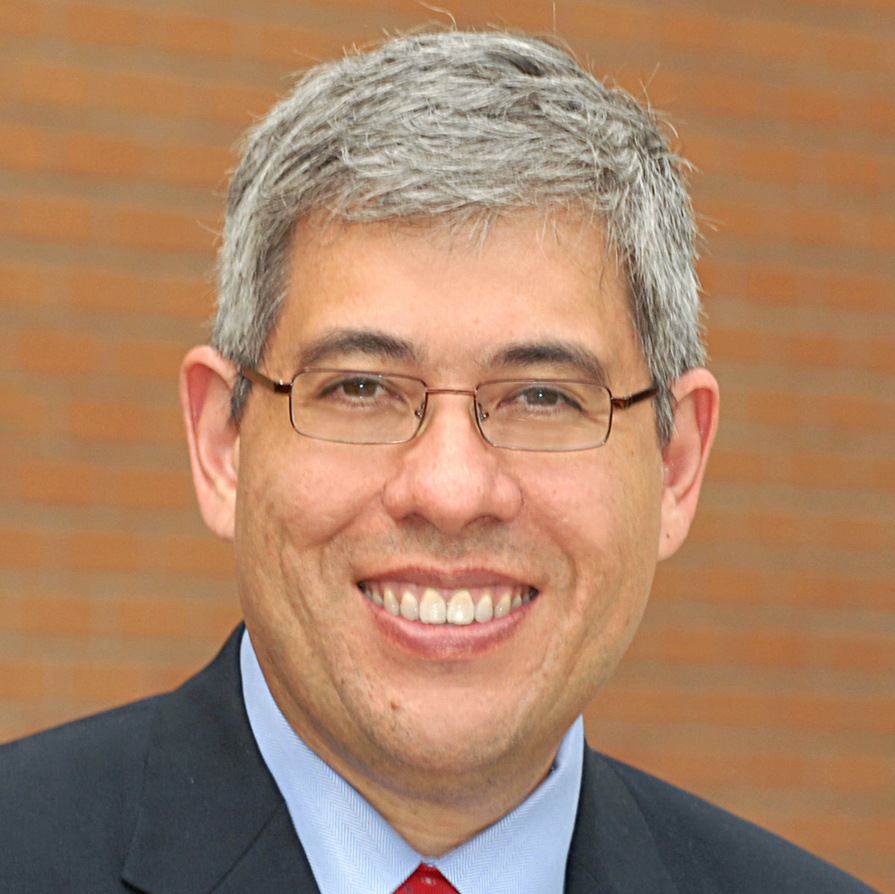Argument preview: What does it mean to “induce” or “encourage” unlawful presence?

on Feb 19, 2020 at 11:00 am

 Few lawyers would accuse the Immigration and Nationality Act of being well drafted. The current law was enacted in 1952, but includes bits and pieces dating back to the founding era, along with major new features that are not always well integrated into the whole. In addition to evoking memories of a time when congressional relief for unauthorized migrants was more possible, United States v. Sineneng-Smith offers a master class in interpreting a creaky, complex statutory structure.
Few lawyers would accuse the Immigration and Nationality Act of being well drafted. The current law was enacted in 1952, but includes bits and pieces dating back to the founding era, along with major new features that are not always well integrated into the whole. In addition to evoking memories of a time when congressional relief for unauthorized migrants was more possible, United States v. Sineneng-Smith offers a master class in interpreting a creaky, complex statutory structure.
Put simply, the issue is this. 8 U.S.C. § 1324(a)(1)(A)(iv) imposes criminal penalties on any person who “encourages or induces an alien to come to, enter, or reside in the United States, knowing or in reckless disregard of the fact that such coming to, entry, or residence in is or will be in violation of law.” Is this, as the government argues with the support of a single amicus brief, a narrow provision prohibiting criminal solicitation and aiding and abetting? Or is it, as the U.S. Court of Appeals for the 9th Circuit found and a range of amici argue, a constitutionally overbroad statute criminalizing a wide range of protected expression, including political speech, attorney representation, charitable and religious counseling, support and outreach, and grandmothers urging their foreign-born grandchildren not to leave them?
The case involves Evelyn Sineneng-Smith, who is apparently a law school graduate but not a licensed attorney. She operated an immigration consulting firm with multiple offices in California, New York and Las Vegas between 1990 and 2008. One service offered was helping noncitizens who did not have legal status but were potentially eligible for it “adjust” their status under Section 245(i) of the INA while physically present in the United States. Adjustment (from, say, undocumented to lawful permanent resident, known as a green-card holder) allowed noncitizens to avoid applying for a visa at a U.S. consulate overseas, which poses a serious problem in some cases because the INA prohibits issuing visas to otherwise eligible applicants who were unlawfully present in the United States for specified periods of time.
However, Section 245(i) only applied to people who, in addition to being immediately entitled to a visa, (1) were in the United States as of December 21, 2000, and (2) had a Labor Certification Application filed on their behalf with the Department of Labor by an employer on or before April 30, 2001. People who came after December 21, 2000, or whose certification application was filed after April 30, 2001, could not use Section 245(i). Even though Sineneng-Smith was aware that the program had expired, she continued offering her services.
Sineneng-Smith was convicted of mail fraud for seeking out and accepting fees from clients, unauthorized migrants who were told that the path to a green card began with the filing of a Labor Certification Application, but who had no chance of adjusting their status under the defunct Section 245(i). The government alleged that Sineneng-Smith sought labor certification for nearly 2,000 clients after 2000, but none received a green card. The 9th Circuit found the evidence sufficient and affirmed the mail-fraud convictions in an unpublished opinion.
The government, though, won a conviction on an additional offense, namely, encouraging or inducing unauthorized migrants to remain in the United States, in violation of 8 U.S.C. § 1324(a)(1)(A)(iv). Some of Sineneng-Smith’s clients testified that they would not have remained in the United States except for the assurance that the labor-certification process could lead to legal status. In the 9th Circuit, after the briefs of the parties were filed, the court requested additional briefing on the constitutionality of Section 1324(a)(1)(A)(iv). Judges A. Wallace Tashima, Marsha Berzon and Andrew Hurwitz held that the statute was unconstitutionally overbroad in violation of the First Amendment because it criminalized a substantial amount of protected speech compared to its legitimate scope. The United States successfully petitioned for certiorari.
In the Supreme Court, the solicitor general contends, essentially, that the statute should be narrowly construed. Read that way, the government asserts, Section 1324(a)(1)(A)(iv) is nothing more than a specific example of traditional criminal prohibitions on soliciting, facilitating, and aiding and abetting crime. This seems to be a substantial change of position from what the government argued below; as the government acknowledges, its current view was not reflected in the jury instructions.
The government’s argument might not help it in this case for another reason. Law professor Eugene Volokh argues as an amicus that to preserve its constitutionality, the statute should be interpreted as a solicitation statute. However, he contends that the First Amendment permits criminal punishment only for soliciting crimes, not for soliciting civil violations; in some cases words may be the equivalent of action, but if the action is a civil violation, the words cannot be made a crime. As immigration advocates frequently note, it is generally not a crime for unauthorized migrants merely to be present in the United States. Accordingly, Volokh’s view, if accepted, might well make a government victory on the claim that the statute prohibits solicitation a limited one, perhaps inapplicable even to this case.
Sineneng-Smith insists that the words “encourages” and “induces” in the statute must take on their natural, broad meaning. The government points to other uses of the words “encourage” and “induce” to mean “aid and abet,” as in 18 U.S.C. § 2(a): “Whoever commits an offense against the United States, or aids, abets, counsel, commands, induces or procures its commission is punishable as a principal.” Sineneng-Smith turns these same statutes against the government, invoking the principle of noscitur a sociis, under which one word in a string is construed in accordance with the words around it. Sineneng-Smith argues that in Section 1324, unlike Section 2(a), there is no contextual basis to narrow the plain language, so the ordinary meaning applies: “At bottom, the government’s position would mean that a prohibition against ‘encouraging’ remaining here is not violated by the words ‘I encourage you to remain here’—simply because such a statement would not constitute aiding and abetting or solicitation.”
Sineneng-Smith also argues that Section 1324(a)(1)(A)(iv) must be interpreted in light of the other prohibitions in the same section. 8 U.S.C. § 1324 contains at least four additional prohibitions. It prohibits knowingly bringing in noncitizens other than at a port of entry, transporting those unlawfully present, concealing, harboring or shielding them, or, importantly, aiding and abetting or conspiring to do any of these things. Sineneng-Smith argues, essentially, that once the law prohibits these things, there is no independent role for the provision at issue other than restricting speech.
The case has attracted many amici supporting Sineneng-Smith, including city attorneys, immigration representatives, social service providers, the Cato Institute, the Electronic Frontier Foundation, the Rutherford Institute, the American Civil Liberties Union and the National Association of Criminal Defense Lawyers. All are concerned that the entities they represent or support would be potentially subject to liability under the provision in this case. This concern appears well-founded, in light of statements made by the government in other cases and the Trump administration’s opposition to sanctuary cities and other policies supporting unauthorized migrants.
Whatever happens in this case, it is not likely to resolve the deeper problem illustrated by the statutes at issue. The U.S. Code does not make it a crime for unauthorized migrants to be here, but it does make it a crime to facilitate their presence. Many widespread programs, from municipal ID cards, “know your rights” training for noncitizens and even free public education for unauthorized migrant children seem to facilitate their presence, and therefore arguably violate the law. Yet provisions of the INA offer avenues for relief for some unauthorized migrants to the United States; federal law authorizes and accredits charitable organizations to provide legal services to noncitizens and states to provide them public benefits. Each of these things can be said to facilitate their presence, but it cannot be that conduct authorized by federal law can itself be a federal crime.
In the absence of a clear indication that Congress considers the millions of unauthorized migrants in this country to be untouchable — in which case people would risk a felony charge by selling them food, allowing them onto a bus or taxi or renting them a place to sleep — perhaps the only way the courts will be able to reconcile Section 1324 with other parts of federal law is by interpreting it as primarily applicable to smugglers and their cohorts, rather than to people who encounter unauthorized migrants who are settled in the United States in ordinary commercial, social, religious, charitable and legal contexts. But this case is more likely to be the first in a string of cases raising this issue than the blockbuster that clarifies the area entirely.


